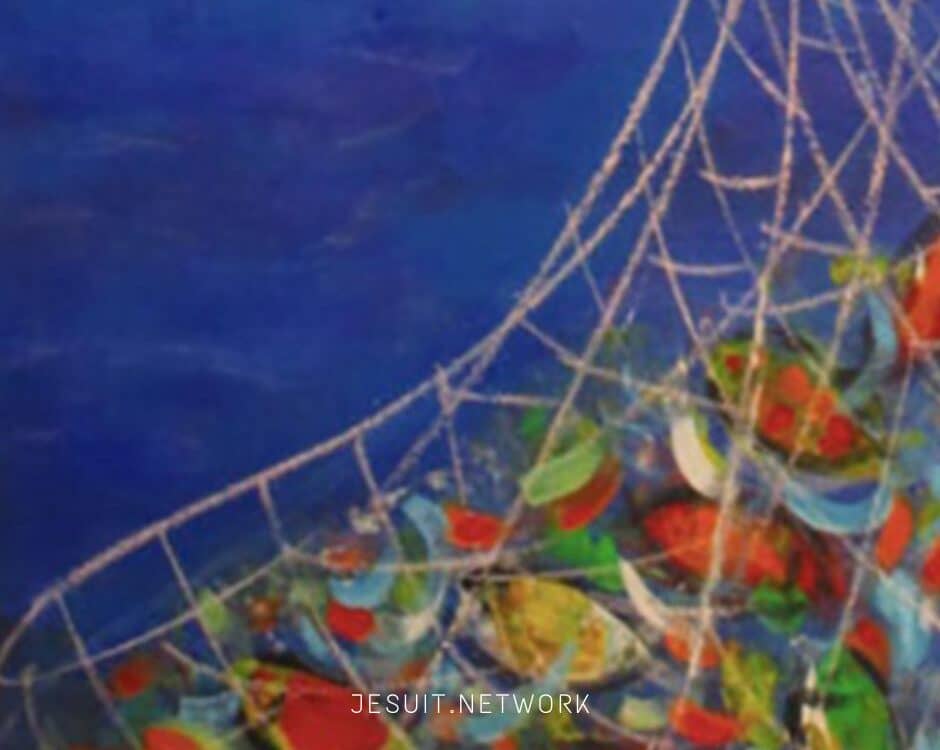This website uses cookies so that we can provide you with the best user experience possible. Cookie information is stored in your browser and performs functions such as recognising you when you return to our website and helping our team to understand which sections of the website you find most interesting and useful.
The Jesuit Post — A ‘Jesuit’ ‘Net’ ‘Work’
The Jesuit Post (TJP) recently celebrated our three year anniversary. As a writer and associate editor for TJP I’m excited to share something of who we are, what we hope to do, and what you (those interested in Jesuit Networking) might learn from our project.
The Jesuit Post is one part web-zine/blog (TheJesuitPost.org), one part social media experiment, and one part collaborative workspace for young Jesuits interested in writing, digital communication, spirituality and pop-culture. We speak with our peers “as one friend speaks with another,” using a variety of digital media, to offer a Jesuit and Catholic perspective on the contemporary world. TJP is a prime example of the multiplying power of Jesuit networking in three ways: (1) We are a network, (2) we use networks, and (3) we serve networks.
1. We are a network.
TJP is staffed entirely by Jesuits in formation. This is a very limited network to be sure, but a clearly defined and long established identity has its advantages. While many important voices are necessarily missing from our writing, our Jesuit particularity gives us a distinctive online voice. And yet, within our Jesuit-micro-network there remains a fair amount of diversity (i.e. one voice, many tones). Like all things Jesuit we are united in our mission and rely on a diverse pool of talents and tools to fulfill it. We’re a workshop of sorts, a farm for future Jesuit writers, a work in progress, but still a work. Our project succeeds (50k+ followers; 2k+ daily readers; and growing) precisely because it is a Jesuit-net-work. Which brings us to the next point…
2. We use networks.
The stand alone site is where our work is published and archived, but all content is created, edited, and promoted online via various network-based platforms. We live in many different parts of the world, but we actively collaborate on all aspects of the site. This collaborative work is made possible (even, at times, easy) by web-based apps such as Google Docs and Slack. Our social media presence (Facebook, Instagram, Twitter, etc.) is another form of publishing and apostolic availability. We literally could not do this work without these network-based tools. Moreover, as the next point suggests, we would have no reason to do so.
3. We serve networks.
In recent decades the Church has affirmed what the youth already know: the digital world is no longer a mere means of communication but rather a cultural context, not only a tool but a territory in want of meaningful evangelization. We go to this place — to this net-culture — as we’ve always gone to new places. The Jesuit missionaries of old had one foundational principle guiding them: there are no God-forsaken places and there ought to be no one beyond our reach (theologically, ideologically, or geographically). We are willing to listen to and talk with anyone, and not merely as strangers or curiosities, not as jewels in our Jesuit networking crown, but rather enthusiastically and humbly, as one friend speaks to another.
Personally, I’ve found working with TJP to be a great privilege, truly the best of Jesuit life. We are a small group of supportive friends who turn our attention and our collaboration toward the concerns of the world around us. In my mind, there is nothing more Jesuit than this — a limited network with a limitless horizon. We’re always looking to encounter more ‘friends’ so, if you’re curious, feel free to check us out, like, follow, and share our project with your networks too!
Photo: The Jesuit Post





